In Rome , the restoration of theExedra of the Dragons at Villa Borghese and the redevelopment of the greenery in the Garden of the Hermes, also known as the 4th Secret Garden of Villa Borghese, are finished. This intervention, part of a larger plan to restore Villa Borghese, gives back to the city a valuable architectural space from the Baroque era. The work, which lasted about four months, was promoted by the Department of Culture of Roma Capitale and carried out under the scientific direction of the Capitoline Superintendency of Cultural Heritage, in collaboration with the Department of Agriculture, Environment and Waste Cycle. The restoration was made possible thanks to a performance donation from the company IZI S.p.a., for a total amount of 100 thousand euros, including also the supervision of works and functional adaptation of the facilities.
The monumental entrance gate saw the recovery of the original plaster and paintwork, as well as the restoration of the rich stucco decoration, which includes cornices, oval niches with copies of Roman busts, travertine spheres on the attic and the two heraldic dragons. The seventeenth-century gate has been restored, using materials compatible with the original ones, while the terracotta roofs have been supplemented with bricks similar to the seventeenth-century ones.
The precious Luna marble fountain from the Roman period, located in the center of the garden, was freed of thick layers of limestone and concretions, bringing back the original marble surface. Restoration of the water supply and drainage system allowed its operation to be reactivated. In addition, a new artistic lighting system was installed in the area.
Thanks to PNRR Caput Mundi funds, further restoration work is planned for the Secret Gardens, the Bird House and the Sundial Casino. The Hermes Garden will be open and visitable daily starting June 27, from 8 a.m. to 7 p.m.
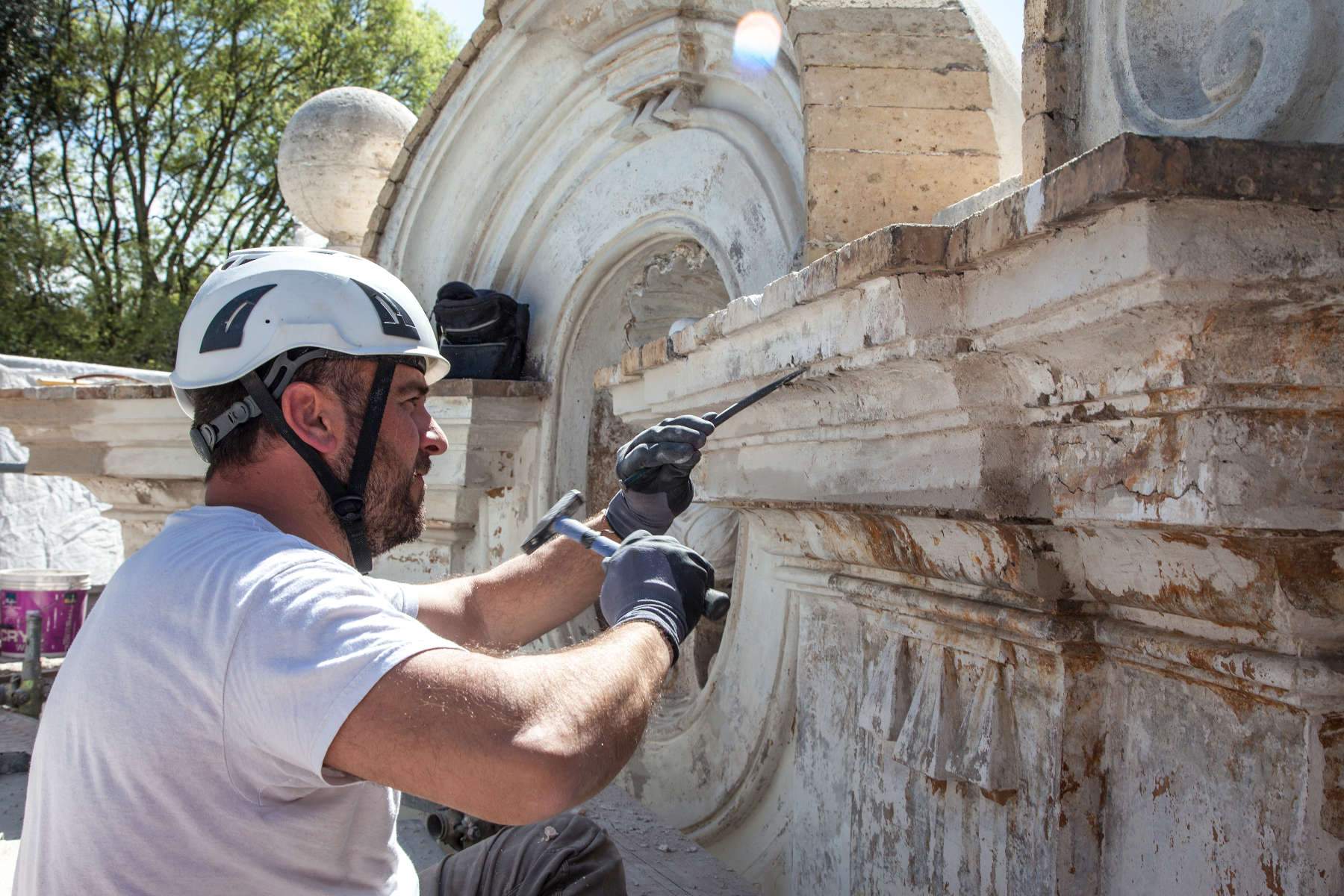
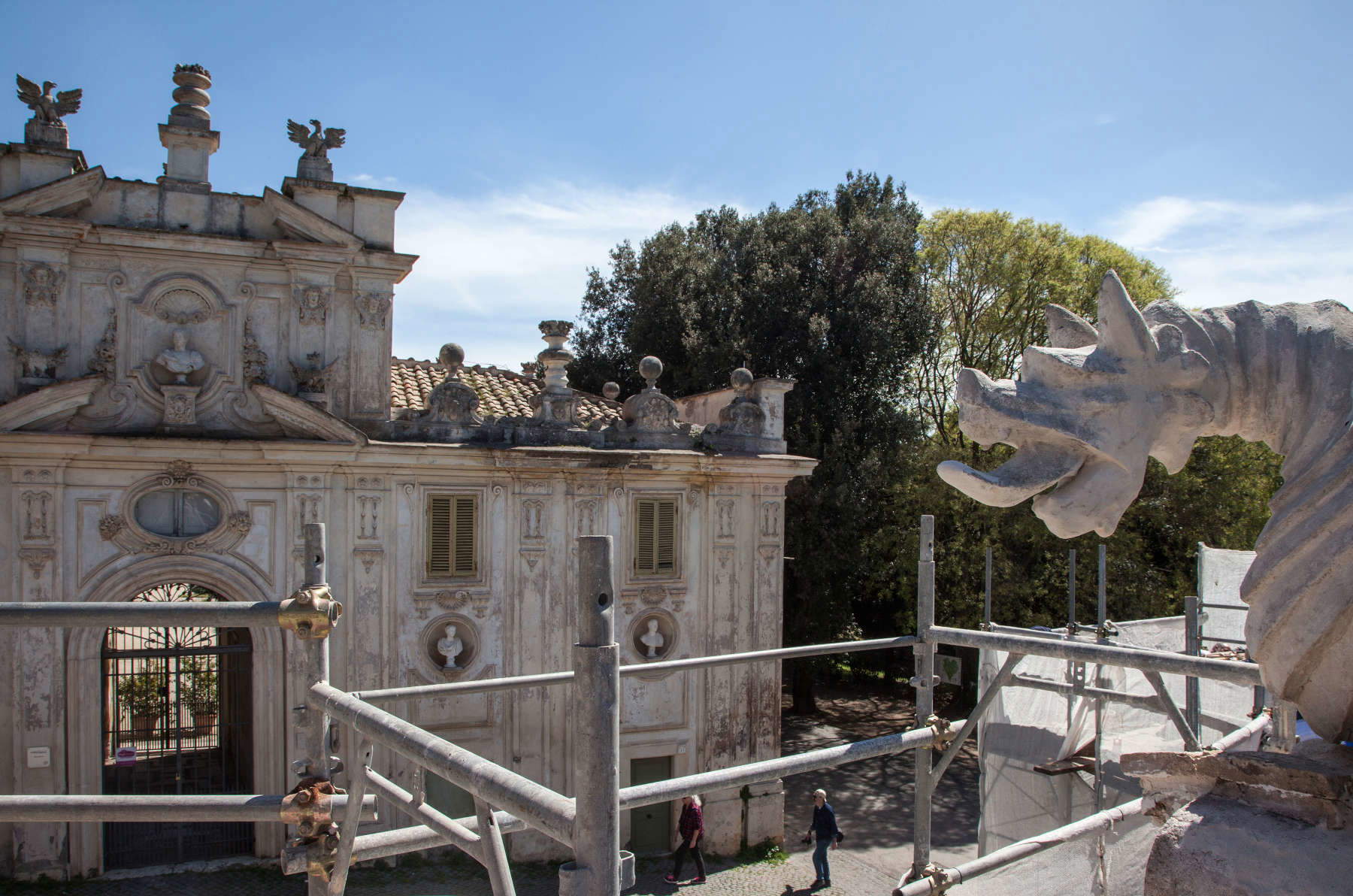
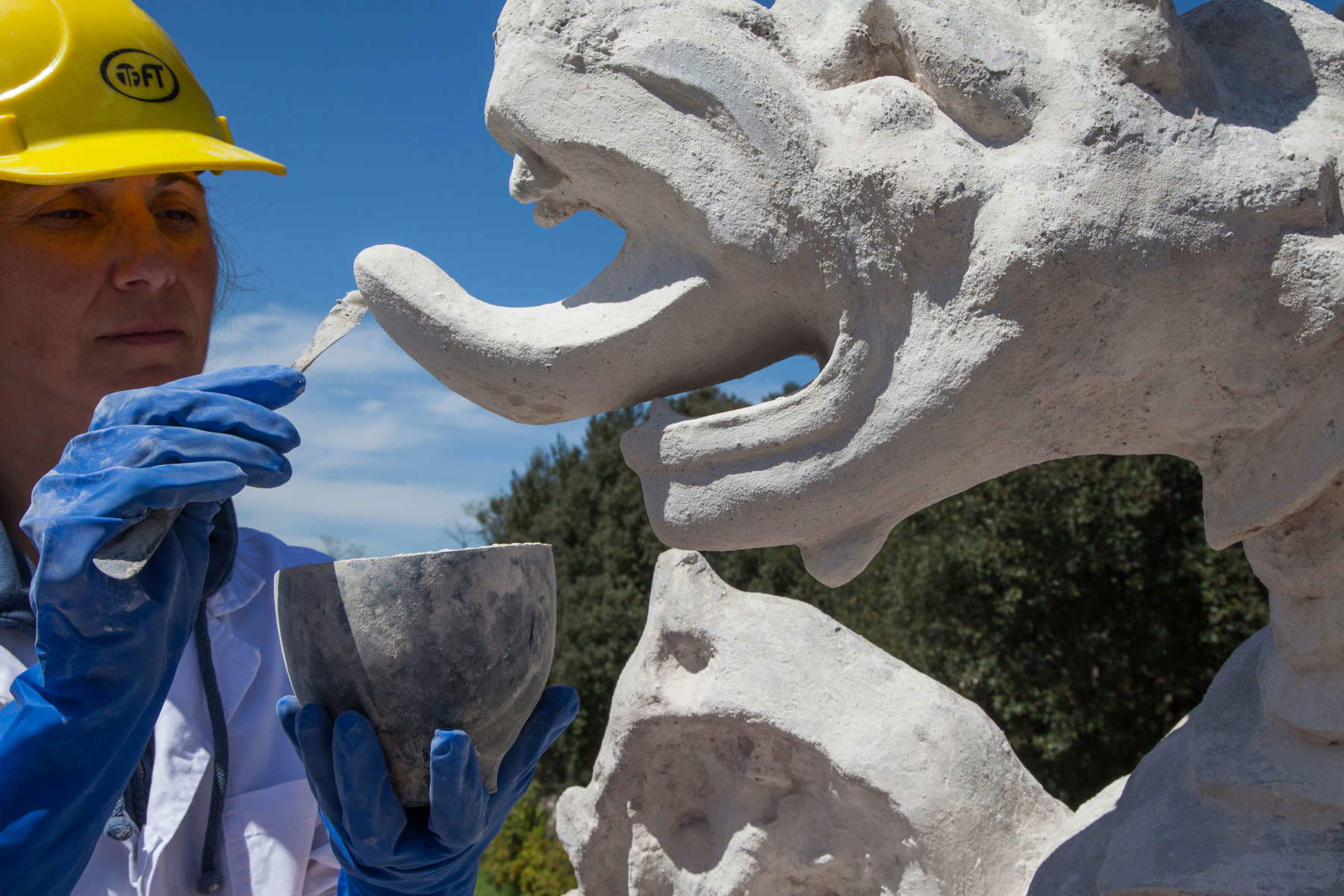
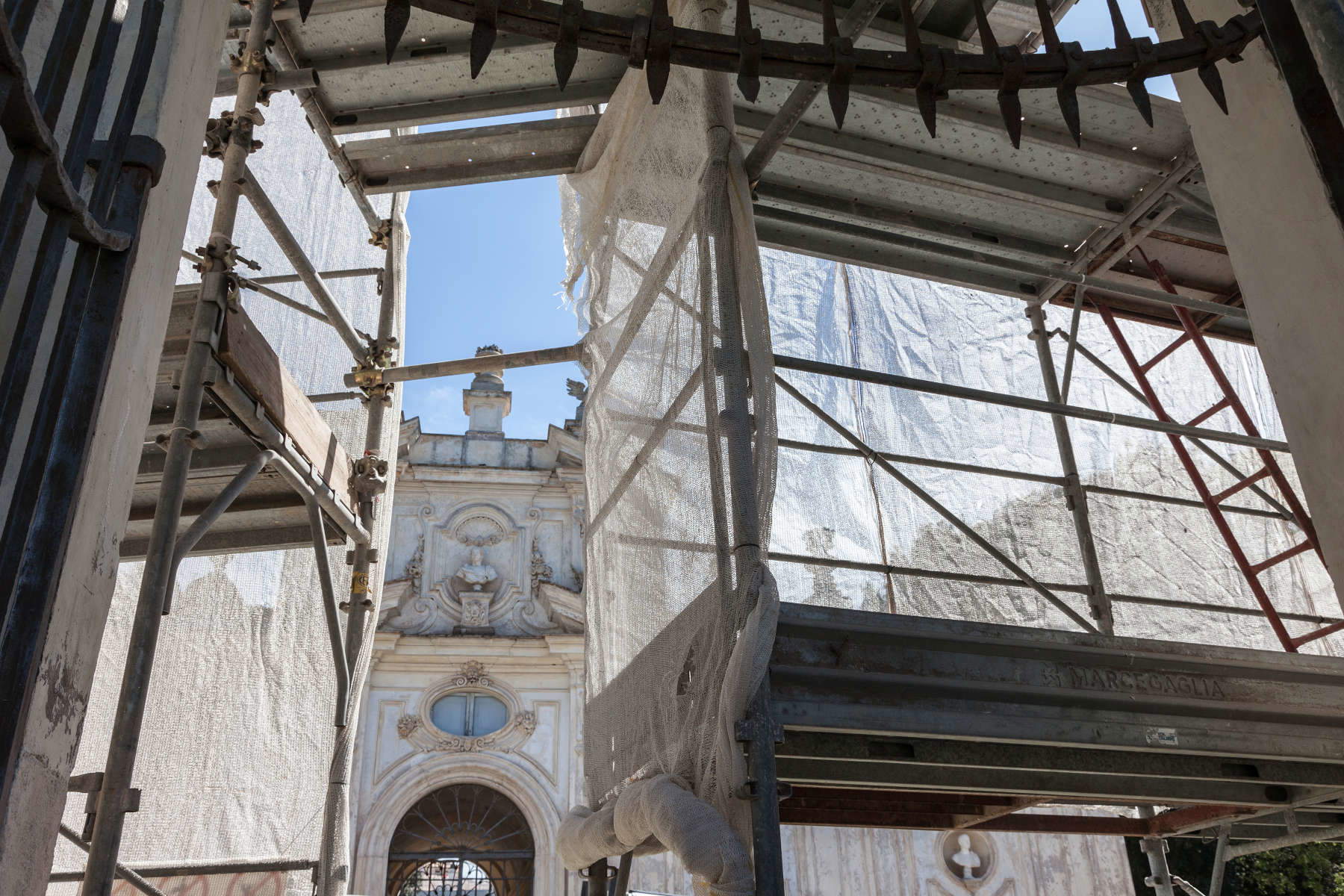
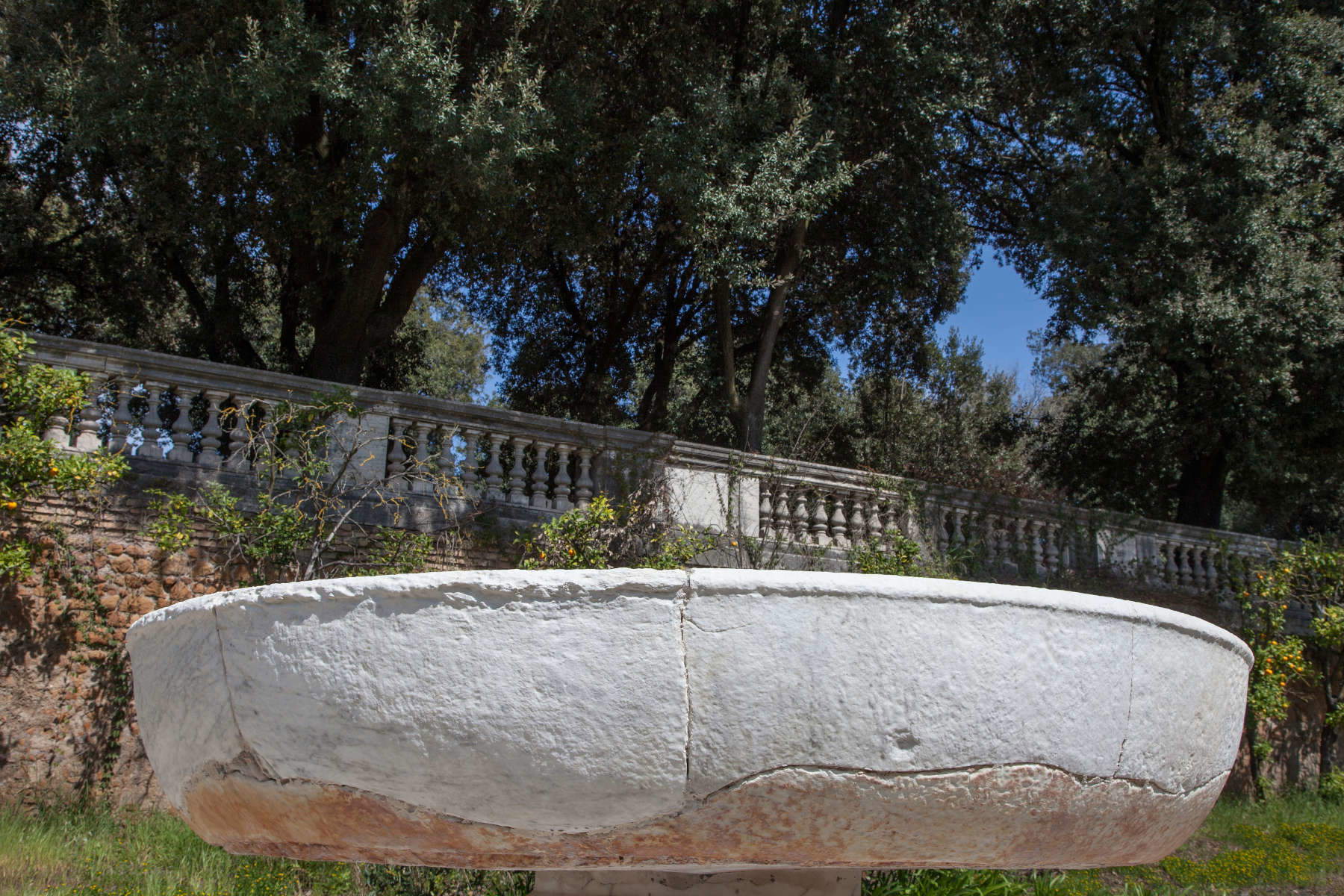
The Herb Garden, part of the “Secret Gardens” adjacent to the Casino Nobile, the suburban residence of Cardinal Scipione Borghese, was created in the 17th century for the display of rare and exotic flowers. The southern entrance to the Fourth Garden, also called the “Garden of Cultivation” because it was used as a nursery, was adorned in the late 17th century with the Exedra of Dragons, designed by architects Carlo Rainaldi and Tommaso Mattei. The garden was further transformed between 1900 and 1919, taking on its final appearance with the inclusion of male herms from the Roman period and other decorative elements.
In 1913, a fountain was added to the center of the garden, consisting of an upper basin of Lunense marble from the Roman period, from municipal deposits. The fountain was modified in 1919, adding a partially buried circular basin, as part of the construction of the balustrade crowning the retaining wall along the eastern side of the garden.
“With the support of the Izi Society, which I thank on behalf of all Romans, we give back to the city one of the most evocative corners of Villa Borghese with the enhancement of the Hermes Garden, making it even more beautiful and better illuminated and restoring both the Roman fountain and the monumental entrance,” commented Mayor Roberto Gualtieri. “This is a new step in our journey to enhance the value of our immense historical, artistic and cultural heritage, from the great archaeological promenade project in the area of the Forums, through the opening of the Museum of Forma Urbis, to the revitalization of Largo Argentina and in the coming months of Piazza Augusto Imperatore.”
“This intervention of enhancement and redevelopment of the historical and artistic heritage of the fascinating Garden of the Hermes at Villa Borghese, which as of today is once again open to the public, was carried out in just four months and was made possible thanks to the contribution of the company IZI,” said Roma Capitale’s Councillor for Culture Miguel Gotor. “The latter wanted to celebrate its 40 years of activity with a donation to the city according to a new formula of agreement between public and private. A very interesting mode of collaboration that I hope will stimulate other private entities to pursue it.”
“A heartfelt thank you to the company IZI, for wanting to support the restoration of the Exedra of Dragons and the Fountain of the Garden of the Hermes in our beautiful Villa Borghese,” communicated Sabrina Alfonsi, councillor for Agriculture, Environment and Waste Cycle of Roma Capitale. “This Villa is part of our collective imagination, a place in the heart of the city, with a secret garden that is reborn and back to shine as one of its most beautiful places. A place to be discovered, in which I invite Roman women and men to immerse themselves among citrus trees, old roses, bulbs and melangoli, cared for by the Garden Service of Roma Capitale.”
“The mutual exchange relationship between a business and its city should not be limited to the supply of jobs and economic growth on the one hand and the supply of services and infrastructure on the other; businesses, those that are successful and rooted in the territory, must be able to give something more back,” says IZI spa President Giacomo Spaini. “For this reason, we want to send a signal to businesses and entrepreneurs that this is just the first in a long series of acts that support the enhancement of our artistic heritage alongside institutions.”
 |
| Rome finishes restoration of Exedra of Dragons at Villa Borghese |
Warning: the translation into English of the original Italian article was created using automatic tools. We undertake to review all articles, but we do not guarantee the total absence of inaccuracies in the translation due to the program. You can find the original by clicking on the ITA button. If you find any mistake,please contact us.